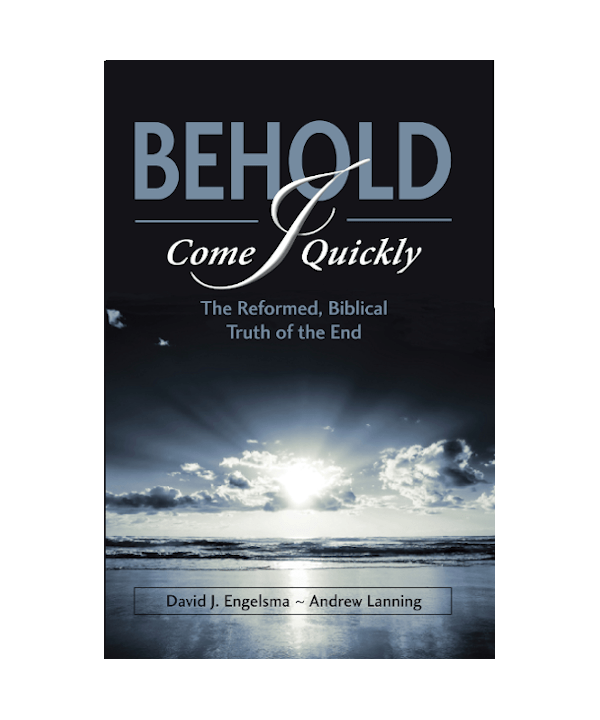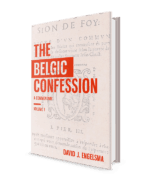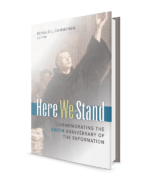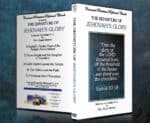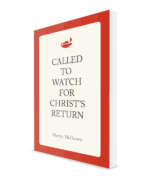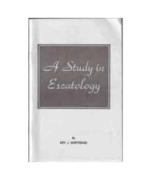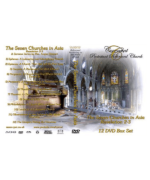CONTENTS
Foreword
PART 1
1. The Second and Quick Coming of Christ: The Signs
2. The Reformed Belief Concerning the Rapture and the Antichrist
3. The Coming World-Conquest of the Beast From the Sea
4. Jesus’ Coming as a Thief in View of Great Apostasy and Abounding Lawlessness
5. The Two Witnesses of Revelation 11
6. The Final Judgment
PART 2
7. Methuselah
8. The Hope of Creation for Christ’s Coming
PART 3
9. Disorderliness and the Second Coming of Christ
10. Dispensationalism, J. N. Darby and Powerscourt
APPENDIX
About the British Reformed Fellowship
Foreword
Cosmic or general eschatology, also known as the study of the end times or the last things, is a magnificent, comforting and challenging truth. It centres on the glorious return of our Lord Jesus Christ, which is preceded by the signs in creation, the world and the church, and which ushers in the general resurrection, the final judgment and the eternal states of the new heavens and the new earth, and the lake of fire.
It was prophesied before the flood (Jude 14-15) and typified by that worldwide deluge (Matt. 24:37-39; II Pet. 3). It was sung by the psalmists (e.g., Ps. 50; 98) and proclaimed by the Old Testament prophets (Acts 3:21). It is the subject of Christ’s Olivet Discourse (Matt. 24-25; Mark 13; Luke 21), the unifying theme of I and II Thessalonians, and the focus of Revelation, the last book of the Bible. Many other chapters treat aspects of the last things (e.g., I Cor. 15; I Tim. 4; II Tim. 3) and, rightly understood, the whole of Scripture, especially the New Testament, is eschatological, calling us to the vital theological virtue of hope.
Heinrich Quistorp accurately describes the attitude of the Reformers—and their true successors—regarding eschatology:
For the reformers the doctrine of the end is primarily a Gospel, a teaching about the joyful Day of Judgment (Luther) or about the day of our salvation and blessed resurrection (Calvin). For them too it is of course a day of judgment, but of the judgment of Jesus Christ and His grace … Hope in the future determines the present life of the Christian and of the church … It is the orientation of the Christian life towards the coming of Jesus Christ and thus towards the future generally.
Hope is the orientation of this book too. As the following chapters expose end-times errors and develop eschatological doctrine, such as apostasy and the Antichrist, and issue practical warnings against lawlessness, disorderliness and earthly-mindedness, the call is always “lift up your heads; for your redemption draweth nigh” (Luke 21:28)!
The genesis of this work on the last things was the 14th British Reformed Fellowship (BRF) Family Conference in Castlewellan Castle, County Down, Northern Ireland (16-23 July, 2016), which the Lord blessed with lively speeches, warm fellowship and sunny weather! It was the resolute desire of the attendees that these lectures be written up as a book (with the same title as the conference): Behold, I Come Quickly: The Reformed, Biblical Truth of the End.
The two main authors of this book are both living in West Michigan, USA: Prof. David J. Engelsma, emeritus Professor of Dogmatics and Old Testament in the Protestant Reformed Seminary, and Rev. Andrew Lanning, pastor of Byron Center Protestant Reformed Church, though he was serving as the minister-on-loan in the Covenant Evangelical Reformed Church in Singapore, when he delivered the speeches which became his four chapters in this work. These two men are responsible for both Part 1 and Part 2 of this book, consisting of the six main lectures and the two Sunday sermons, respectively.
Part 3 begins with the introductory speech at the 2016 BRF Conference by Rev. Martyn McGeown, editor of the British Reformed Journal (BRJ) and missionary-pastor of the Limerick Reformed Fellowship (LRF) in the Republic of Ireland. It concludes with a historical lecture on the origins of dispensationalism with J. N. Darby and the stately mansion of Powerscourt, located south of Dublin, by Rev. Angus Stewart, the minister of the Covenant Protestant Reformed Church (CPRC) in Ballymena, Northern Ireland.
Behold, I Come Quickly is the seventh BRF book. The first six were co-authored by Profs. Herman Hanko and David J. Engelsma: Keeping God’s Covenant (2006), The Five Points of Calvinism (2008), The Work of the Holy Spirit (2010), The Reformed Worldview (2012), Ye Are My Witnesses (2014) and Be Ye Holy (2016).
Holy Scripture presents us with this beautiful and entirely fitting, eschatological truth: Christ “shall come to be glorified in his saints, and to be admired in all them that believe” (II Thess. 1:10). Let us also glorify and admire our crucified and returning Saviour now! He tells us often that He is coming quickly (Rev. 3:11; 22:7, 12, 20). May the Lord strengthen your faith and hope, and deepen your worship as you read this soul-stirring book.
Rev. Angus Stewart
BRF Chairman
This book can also be read on-line in PDF.
The chapter on “Dispensationalism, J. N. Darby and Powerscourt” can be read on-line on a separate webpage.
“A great book … no nonsense, straight talking and to the point.” – Co. Armagh, N. Ireland
“I have been incredibly blessed in reading Behold, I Come Quickly.” – Kenya
“Must read! Excellent interpretation.” – Singapore
“I’m reading Behold, I Come Quickly. This is a great book because it destroys dispensationalism and post-millennialism and defends amillennialism which is the Reformed position.” – England

